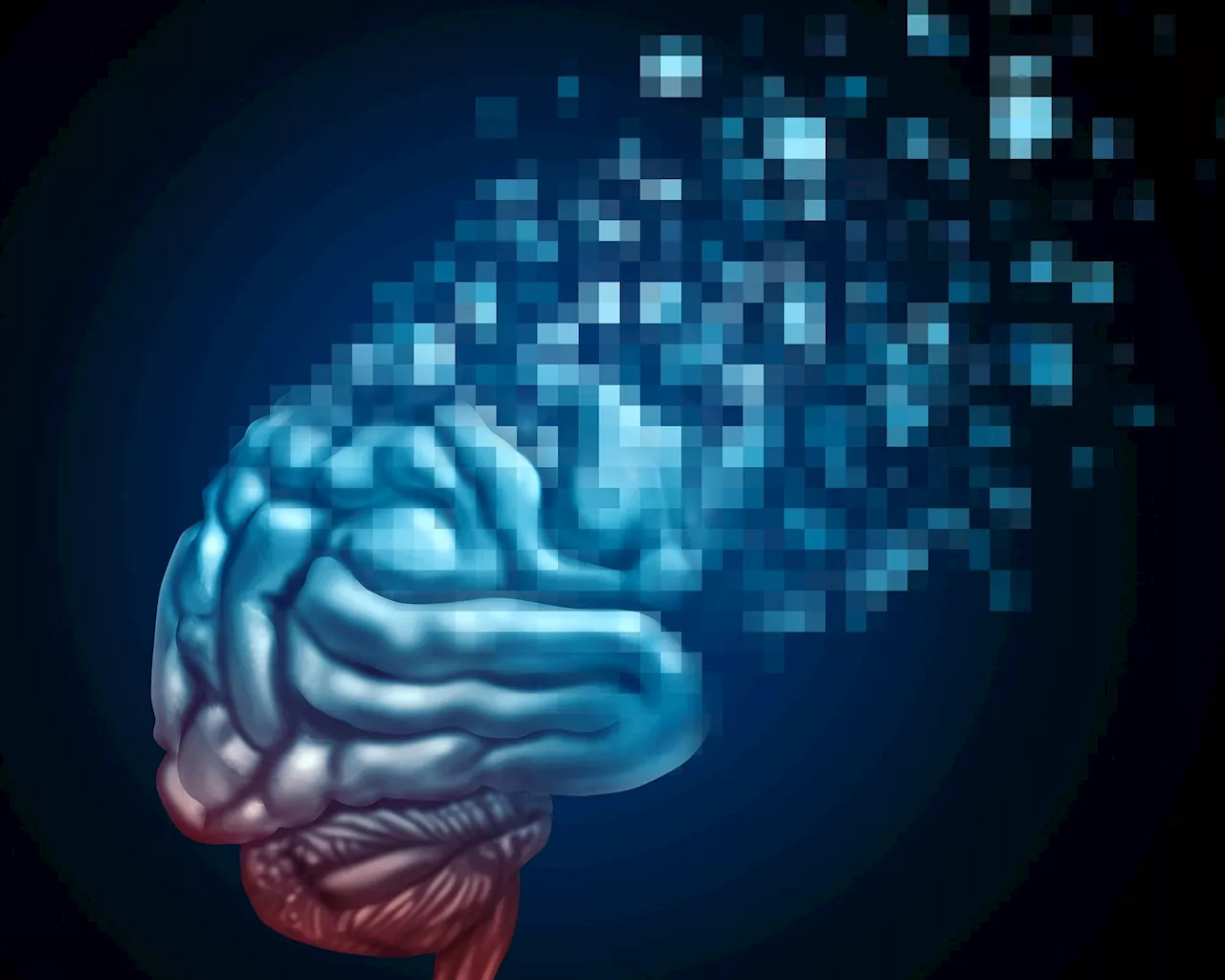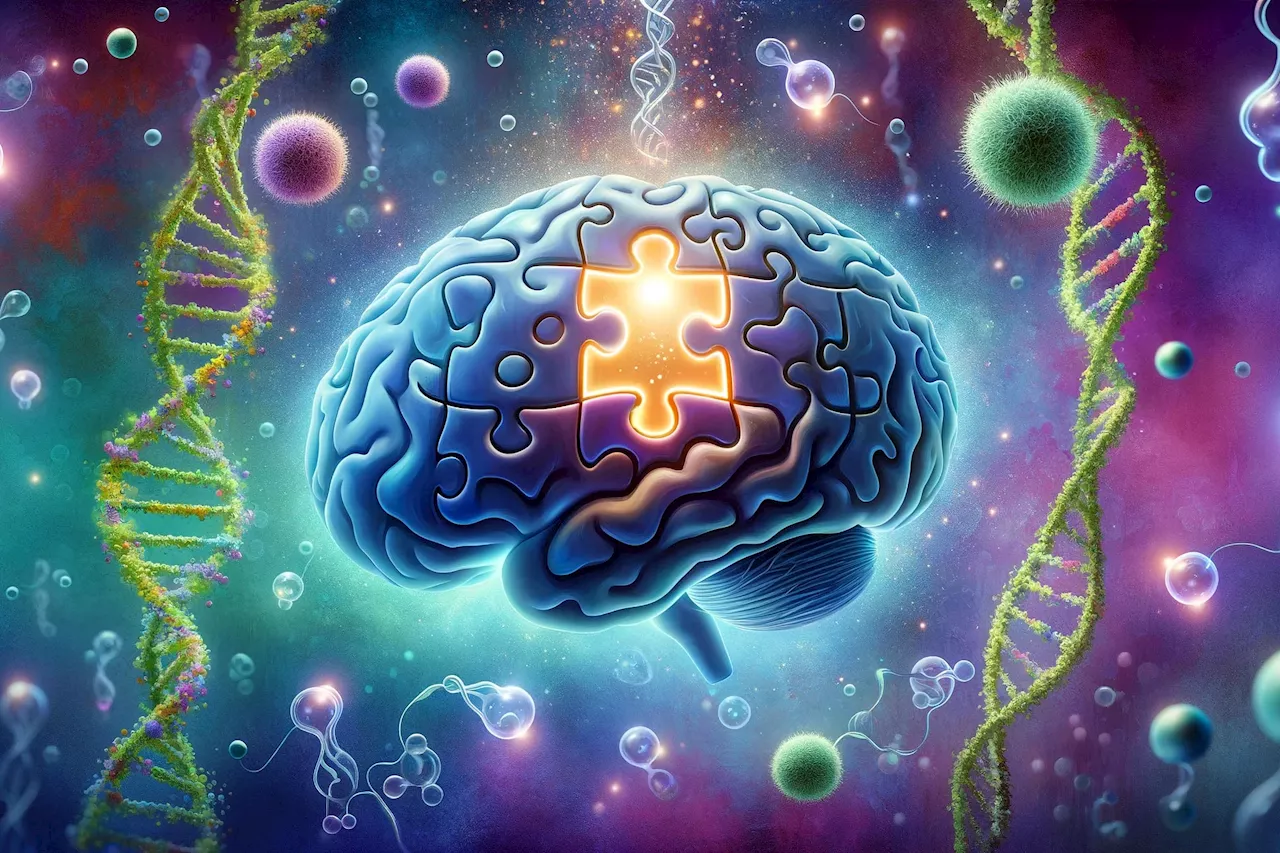Science, Space and Technology News 2024
Recent research led by Jerold Chun reveals that brain vesicles in Alzheimer’s patients carry unique genetic instructions that may contribute to disease progression. The study found a significant presence of full-length mRNAs and a unique gene expression pattern associated with inflammation, offering new insights into Alzheimer’s pathology and potential avenues for early detection and therapy. This portrait of extracellular vesicles was taken using confocal laser scanning microscopy.
“To corroborate the results of long-read sequencing in the human samples, we also looked at vesicles isolated from mouse cells,” says first author Linnea Ransom, Ph.D., a postdoctoral fellow at Sanford Burnham Prebys. “We found similar averages of between 78% and 86% full-length transcripts in three brain cell types: astrocytes, microglia, and neurons.”
The scientists determined that the 700 upregulated genes are associated with inflammation and immune system activation, which fits within known patterns of brain inflammation present in neurodegenerative diseases such as Alzheimer’s disease. The researchers also found many genes associated with Alzheimer’s disease in prior genome-wide association studies also were present in Alzheimer’s disease sEVs.
South Africa Latest News, South Africa Headlines
Similar News:You can also read news stories similar to this one that we have collected from other news sources.
 Groundbreaking Study Reveals Hidden Brain Risks in Heart Disease PatientsScience, Space and Technology News 2024
Groundbreaking Study Reveals Hidden Brain Risks in Heart Disease PatientsScience, Space and Technology News 2024
Read more »
 Decoding Earth’s Cosmic Shields in Groundbreaking StudyScience, Space and Technology News 2024
Decoding Earth’s Cosmic Shields in Groundbreaking StudyScience, Space and Technology News 2024
Read more »
 New Insights Into Type 3 Diabetes – Groundbreaking Study Reveals How Diet Influences Alzheimer’s RiskScience, Space and Technology News 2024
New Insights Into Type 3 Diabetes – Groundbreaking Study Reveals How Diet Influences Alzheimer’s RiskScience, Space and Technology News 2024
Read more »
 Groundbreaking Study Reveals Potential Treatment for COVID-19 Brain FogScience, Space and Technology News 2024
Groundbreaking Study Reveals Potential Treatment for COVID-19 Brain FogScience, Space and Technology News 2024
Read more »
 Groundbreaking Study Reveals New Immune Cell Responsible for Weak Antibody Responses in Chronic Viral InfectionsAustralian scientists have discovered a previously unidentified rogue immune cell that is linked to poor antibody responses in chronic viral infections. This groundbreaking study offers hope for improved treatments and prevention strategies for diseases such as HIV and hepatitis.
Groundbreaking Study Reveals New Immune Cell Responsible for Weak Antibody Responses in Chronic Viral InfectionsAustralian scientists have discovered a previously unidentified rogue immune cell that is linked to poor antibody responses in chronic viral infections. This groundbreaking study offers hope for improved treatments and prevention strategies for diseases such as HIV and hepatitis.
Read more »
 Groundbreaking Study Reveals Autism’s Genetic Triggers and Therapeutic HopeJapanese scientists uncover the genetic basis of autism through a study on KMT2C haploinsufficiency in mice, revealing the therapeutic promise of vafidemstat in treating ASD-related symptoms.
Groundbreaking Study Reveals Autism’s Genetic Triggers and Therapeutic HopeJapanese scientists uncover the genetic basis of autism through a study on KMT2C haploinsufficiency in mice, revealing the therapeutic promise of vafidemstat in treating ASD-related symptoms.
Read more »
